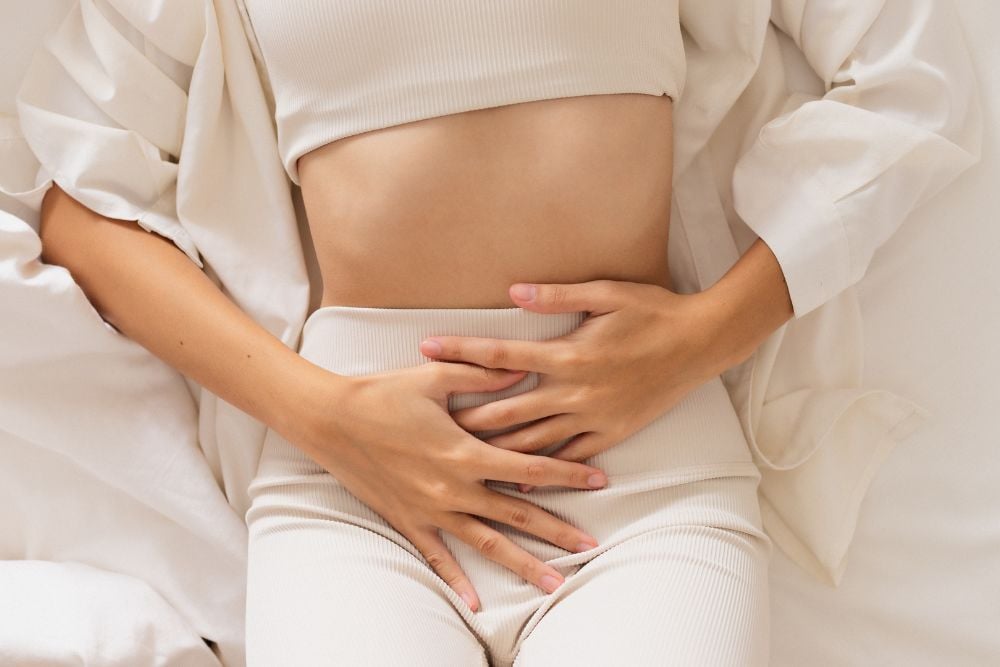Fertility & Endometriosis: What Patients Should Know
Posted on March 17th, 2023

Did you know? Endometriosis affects about one in 10 women, making it one of the most common causes of infertility in women.
Endometriosis is a reproductive condition that can cause long-term pain and problems with menstruation, ovulation, and conception. However, not all women with endometriosis experience the same symptoms. Endometriosis is often improperly diagnosed, making it difficult for people with the condition to predict their chances of having a child. While it’s possible to successfully get pregnant and give birth naturally with endometriosis, fertility in general can be compromised by the condition.
An Explanation of Endometriosis
Typically, with each menstrual cycle per month, the uterus grows a new lining called the endometrium, which prepares the uterus for an embryo. However, when there is no embryo present, the endometrium sheds and exits the body with each menstrual cycle. With endometriosis, this tissue accumulates outside the uterus. Generally, it grows on or around reproductive organs in the pelvis or abdomen, including the fallopian tubes, ovaries, and the space between the uterus and the rectum or bladder.
Hormonally sensitive, this tissue may become inflamed during menstrual cycles. It can cause ovarian cysts, superficial lesions, deeper growths, scar tissue, and adhesions (i.e. tissue that fuses your organs together).
Endometriosis Risk Factors
Endometriosis generally affects women between 25 and 40 years old, although it can first appear during adolescence. The cause of endometriosis is not fully understood, but there is a correlation between excessive tissue growth and unbalanced estrogen levels. Potential risk factors include having a family history, menstruating before the age of 11, a shorter time between periods, the number of days of menstrual bleeding, and uterine or fallopian tube defects.
Understanding Endometriosis Symptoms
Endometriosis affects women differently, with some individuals having very few symptoms and others having many. You could also have none and be unaware that you have endometriosis until it comes up during an exam. There’s also no clear association between symptoms and severity. Some women may experience extreme pain but have little tissue growth. Others may have severe endometriosis, but with little, if any pain.
Endometriosis is often underdiagnosed or even misdiagnosed, as symptoms can be generic or confused with “normal” menstrual issues. The main symptom is pain, mild or intense, usually felt in your abdomen, pelvic region, and lower back. You may also experience:
- Pain during sex
- Painful bowel movements
- Painful menstrual cramps
- Heavier periods, with spotting (light bleeding) between cycles.
Endometriosis and Pregnancy Options
If you have endometriosis and are trying to become pregnant, you can have a healthy baby. However, conception may be more difficult, and you’ll be at higher risk for serious pregnancy complications.
If you have endometriosis and it’s affecting your fertility, the good news is that fertility care can often help you conceive. Among the techniques you may consider are:
- In vitro fertilization (IVF), in which mature eggs are retrieved from your ovaries and fertilized with sperm in a laboratory. Once the fertilized egg develops into an embryo, it is then implanted into your uterus.
- Intrauterine insemination (IUI), or artificial insemination, involves placing a specially washed and concentrated semen sample directly into your uterus during ovulation. IUI can significantly increase conception chances with endometriosis. You may consider combining IUI with a technique called superovulation (SO-IUI), which stimulates the monthly release of multiple eggs.
- If you’re not quite ready to start a family yet but want to preserve your fertility options while dealing with endometriosis, egg freezing may be a good option. Endometriosis can take a toll on a woman’s ovarian reserve, a sufficient number of healthy, high-quality eggs. Freezing your eggs ahead of time before your ovarian reserve is affected can help preserve your fertility options later in life.
Schedule an Endometriosis Fertility Consultation in Texas
Endometriosis is a very common condition that is often misdiagnosed or underdiagnosed. If you suspect that you have endometriosis and are concerned about it affecting your ability to have a child, talk to your provider about your concerns and see what steps you need to take. To learn more about your fertility care options with endometriosis, please contact the fertility specialists of Aspire Fertility.

























